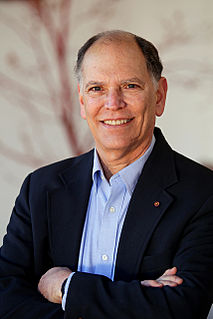A Quote by Andrew Hoberek
The history of modern culture is a history of popular entertainments evolving into art.
Related Quotes
I love art, and I love history, but it is living art and living history that I love. It is in the interest of living art and living history that I oppose so-called restoration. What history can there be in a building bedaubed with ornament, which cannot at the best be anything but a hopeless and lifeless imitation of the hope and vigor of the earlier world?
I believe that in the history of art and of thought there has always been at every living moment of culture a will to renewal. This is not the prerogative of the last decade only. All history is nothing but a succession of crises - of rupture, repudiation and resistance. When there is no crisis, there is stagnation, petrifaction and death. All thought, all art is aggressive.
Imagine it's 1981. You're an artist, in love with art, smitten with art history. You're also a woman, with almost no mentors to look to; art history just isn't that into you. Any woman approaching art history in the early eighties was attempting to enter an almost foreign country, a restricted and exclusionary domain that spoke a private language.































